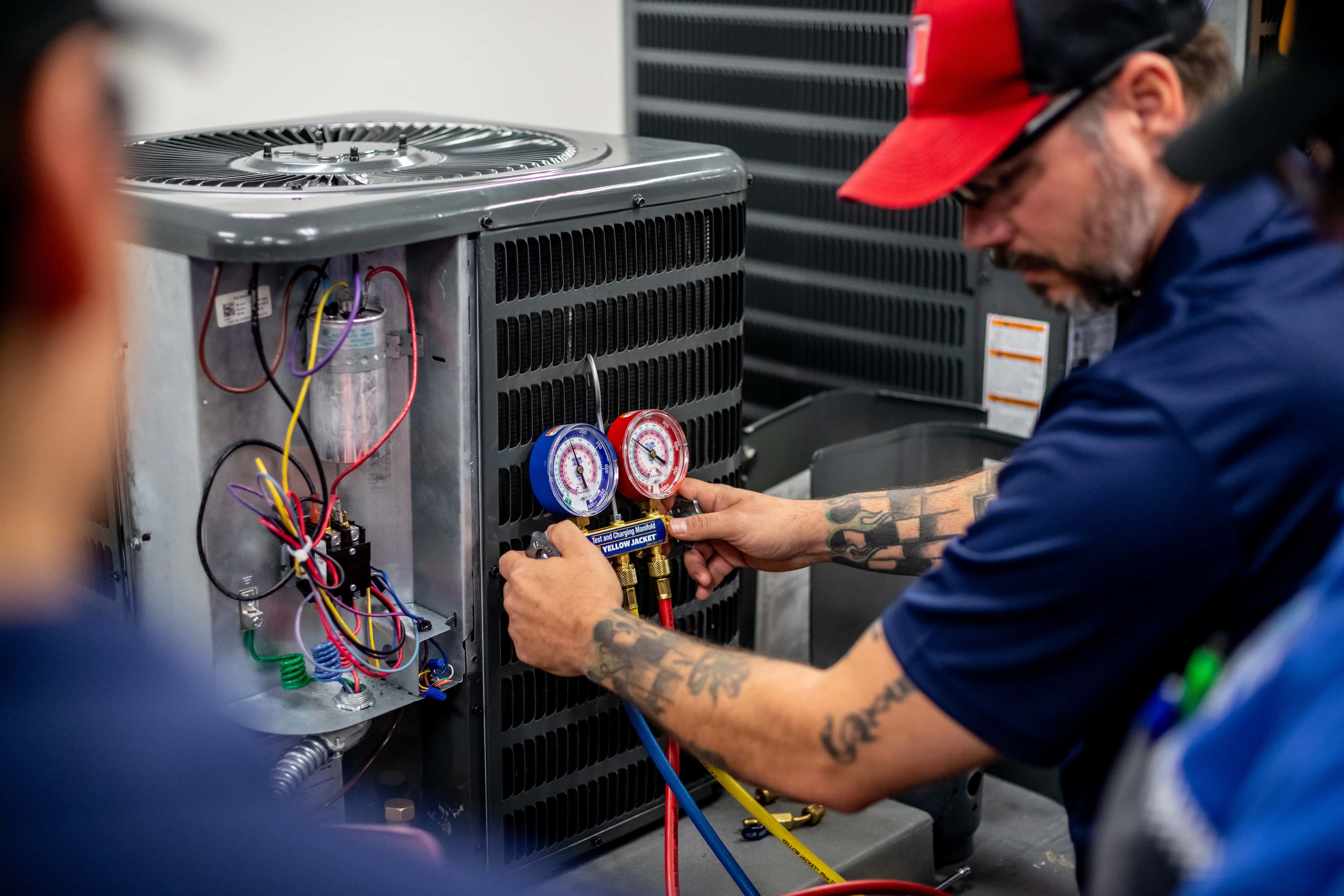The HVACR industry continues to grow in complexity and demand, and in 2025, the importance of professional HVACR certifications has never been greater.
Whether you’re an aspiring HVACR refrigeration technician or already in the field and want to boost your resume, earning the right certifications can help open doors. In this guide, we’ll explore why certifications matter, which ones you need and how to get started.
Why HVACR Certifications Matter in 2025
Improving your resume
Employers are actively seeking certified professionals who can hit the ground running. Holding certifications like the EPA certification (Environmental Protection Agency) or NATE certification (North American Technician Excellence) could help aspiring techs boost their resume and appeal to employers.
Compliance with industry regulations and environmental standards
With stricter environmental policies and refrigerant regulations being enforced in 2025, certifications ensure HVAC technicians stay compliant. HVACR technicians who hold HVACR certifications understand safety, efficiency and legal standards.
Enhanced technical skills and career growth
Certifications are more than credentials. They’re proof of your technical knowledge and readiness to take on complex HVACR systems. As the industry evolves with smarter and greener technologies, staying certified means staying relevant.
Essential HVACR Certifications for 2025
EPA 608 Universal certification
Required for anyone who handles refrigerants, the EPA Core certification helps ensure compliance with the Clean Air Act. It’s a must-have for all refrigeration technicians and is often the first certification technicians earn.
NATE certification
The NATE certification is an industry-respected credential that demonstrates excellence in HVACR installation and service. It’s recognized by employers nationwide and enhances both credibility and career potential.
R-410A safety certification
This certification qualifies technicians in the safe handling of R-410A, a high-pressure refrigerant used in modern HVACR systems. It’s increasingly critical as more systems transition to environmentally safer refrigerants.
OSHA safety certifications for HVAC technicians
Safety is key in any trade. OSHA 10-Hour construction training or OSHA 30 certifications prepare technicians to work safely on job sites and comply with federal workplace safety standards.
Advanced and Specialized HVACR Certifications
Refrigeration Service Engineers Society (RSES) certification
The RSES certification provides advanced training in refrigeration systems and is well-suited for technicians working in commercial or industrial environments.
Geothermal and solar HVACR certifications
Green energy is reshaping HVACR. Specialized certifications in geothermal and solar systems can give technicians a competitive edge in the growing field of renewable HVACR solutions.
HVACR system performance and efficiency certifications
Certifications focused on system diagnostics and performance optimization help technicians improve energy efficiency, reduce service costs and deliver better results to clients.
Steps To Earn an HVACR Certification in 2025
Meeting eligibility requirements
Before pursuing certification, technicians typically need a high school diploma or GED. Some advanced certifications may require formal training or on-the-job experience.
Enrolling in an accredited training program
Accredited programs provide hands-on training and exam prep. Many schools, like Universal Technical Institute (UTI), offer specialized courses to help you prepare.1
UTI offers a 9-10 month HVACR Technician training program that covers refrigeration, ventilation, heating and air conditioning topics. Students learn in hands-on labs from instructors who have worked in the industry.
The best part about UTI’s HVACR training program is that it’s designed to help students prepare to test for widely recognized HVACR certifications that include:
- EPA Section 608 Technician Certification
- NATE Core exam*
- OHSA 10-Hour construction training
- R410A refrigerant safety
- A2L Safety Refrigerant Certification
HVACR training at UTI can be a great way to jumpstart the pursuit of a career in the industry, as it provides the foundation of knowledge needed.
*Technicians seeking NATE certification take two exams: the Core exam and the Specialty exam. UTI offers prep and testing for the Core exam only; once passed, technicians are enabled to take the Specialty exam through an employer.
Preparing for and passing certification exams
Most certifications require passing a written exam. Preparation through textbooks, online courses and practice tests can be helpful.
Of course, an HVACR school like UTI will cover in-depth key topics required for certifications while providing hands-on training, which is a great combo to have when trying to enter the industry!
Renewing and maintaining HVACR certifications
Some certifications, like NATE, require periodic renewal or continuing education credits. Staying up to date ensures you retain your license and adapt to industry changes.
Get Training from UTI To Prepare You To Test for HVACR Certifications
Ready to take the next step in pursuing an HVACR career? Enrolling in a reputable training program can help you prepare to take exams to earn valuable HVACR certifications, including EPA certification, NATE certification and other important safety certs.
See how you can get started today when you request info here.
Universal Technical Institute of Illinois, Inc. is approved by the Division of Private Business and Vocational Schools of the Illinois Board of Higher Education.

